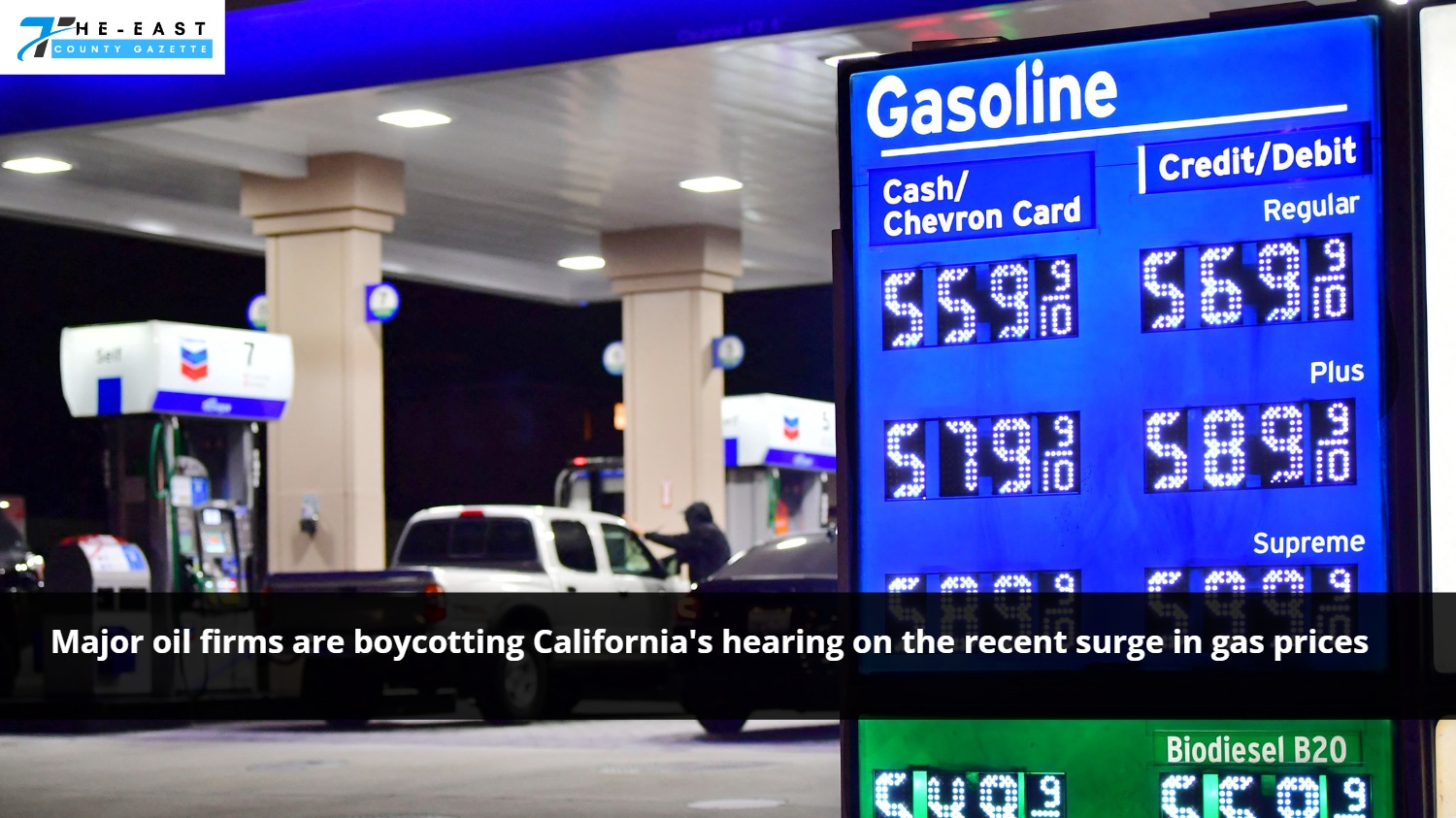Documents obtained by the California Energy Commission indicate that the state’s primary oil refiners have declined invitations to testify in a hearing scheduled for Tuesday to discuss recent increases in gas prices.
David Hochschild, chairman of the CEC, stated, “It’s a major matter, and it merits all our attention, and they should show there.” It’s never happened before.
I told them, “I’ve never seen anything like this happen before, and it’s sad.”
After gas prices neared record highs in late September and early October, when they averaged around $6.43 per gallon and spiked $2.60 more than the national average, the commission demanded answers from the state’s five major oil refiners in California on October 16.
Tuesday’s hearing comes nearly two months after that demand.
Governor Gavin Newsom has accused oil corporations of taking advantage of their customers and has promised to convene a special legislative session in December to force legislators to levy a new tax on the industry so that the extra earnings can be distributed to the state’s residents.
According to CEC emails and letters, all five major oil corporations (Marathon, Valero, Phillips 66, PBF Energy, and Chevron) declined to participate in Tuesday’s meeting.

The Western States Petroleum Association stands in as a representation of the industry for all of them before the government regulators.
Catherine-Reheis Boyd, president, and chief executive officer of the WSPA, will be one of the speakers.
PBF Energy’s senior vice president of supply, trading, and optimization, Paul Davis, sent a letter to the committee saying the company would not be sending witnesses because of Newsom’s politicization of the issue.
“The politicization of this issue by Governor Newsom is heightened by the misleading information he released and commented on related to our [third quarter of 2022] earnings,” Davis wrote.
To set the record straight, here is what we said to the governor’s top aides in [the first fiscal quarter of 2022]:
“For the record, we formally met with members of the governor’s senior staff twice in [the first financial quarter of 2022] to discuss our concerns about potential near-term gasoline supply shortages and spoke with them after that several other times.”
Kevin Slagle, a spokesman for the Western States Petroleum Association, said, “We hope it will be a discussion about public policy that has led us to this position where we have the costs that we do.”
Unfortunately, we expect a political show, but we’re ready for it.
The CEC first invited Marathon, Valero, Phillips 66, and Chevron but later withdrew the offer after representatives from those firms said they could not participate due to restrictions imposed by state and federal anti-trust legislation.
In California, 97% of the gasoline supply comes from just five oil refineries. State officials and consumer rights activists were disappointed by their refusal to participate.
During his testimony on Tuesday, Consumer Watchdog president Jamie Court said that oil industry profits nearly quadrupled between the first and third quarters of this year and the same period last year, from $17.6 billion to $67.6 billion.
He made the observation, “I think it’s extremely telling the oil refiners won’t show their face,” which I found to be both accurate and instructive.
They hide their identities because they know they can’t ethically defend such excessive earnings. It is anticipated that the hearing will serve merely as an educational session, with no formal action to follow.

The commission has published a roster of presenters that includes state specialists as well as representatives from consumer, academic, and consulting groups.
Several months ago, the oil sector complained that the state’s increasing regulations made refining oil and importing gasoline more difficult.
Since crude oil prices were around $100 per barrel at the end of August, when the average gas price in California was $5.06, Newsom and the commission have argued that there was no acceptable reason for the gas price surge in the fall.
Despite a drop in oil prices to $90 per barrel in early October, the national average price of gasoline increased to $6.43/gallon.
As of the 28th of November, the state of California’s average gas price has dropped to $5.04.

Marathon’s CEC representative recently pointed out that logistical availability is another issue in California’s high gas costs (such as pipeline capacity, transport trucks, railcars, and storage facilities).
In addition to supply and demand, he mentioned that state and federal renewable fuel blending rules impact prices.
It’s also worth noting, as Marathon’s Stephen Konig put it, that the conflict in Ukraine has had “a significant impact” on both the cost and feasibility of shipping fuel to California from Asia.
When California’s stock runs low, typically, other markets can help fill the gap.
The California Energy Commission can force refineries to show up to their hearings by issuing subpoenas.
Hochschild said he would keep inviting the five major refiners if the commission decided to hold more hearings on the issue.
We’re not trying to go to war with any of the interested parties, and that includes the oil industry.
Hochschild remarked, “We want to work together on solutions and get to the bottom of the issues. If we encounter stubbornness, resistance, or failure to appear on time, we will be forced to resort to more forceful measures.
Source: KCRA

